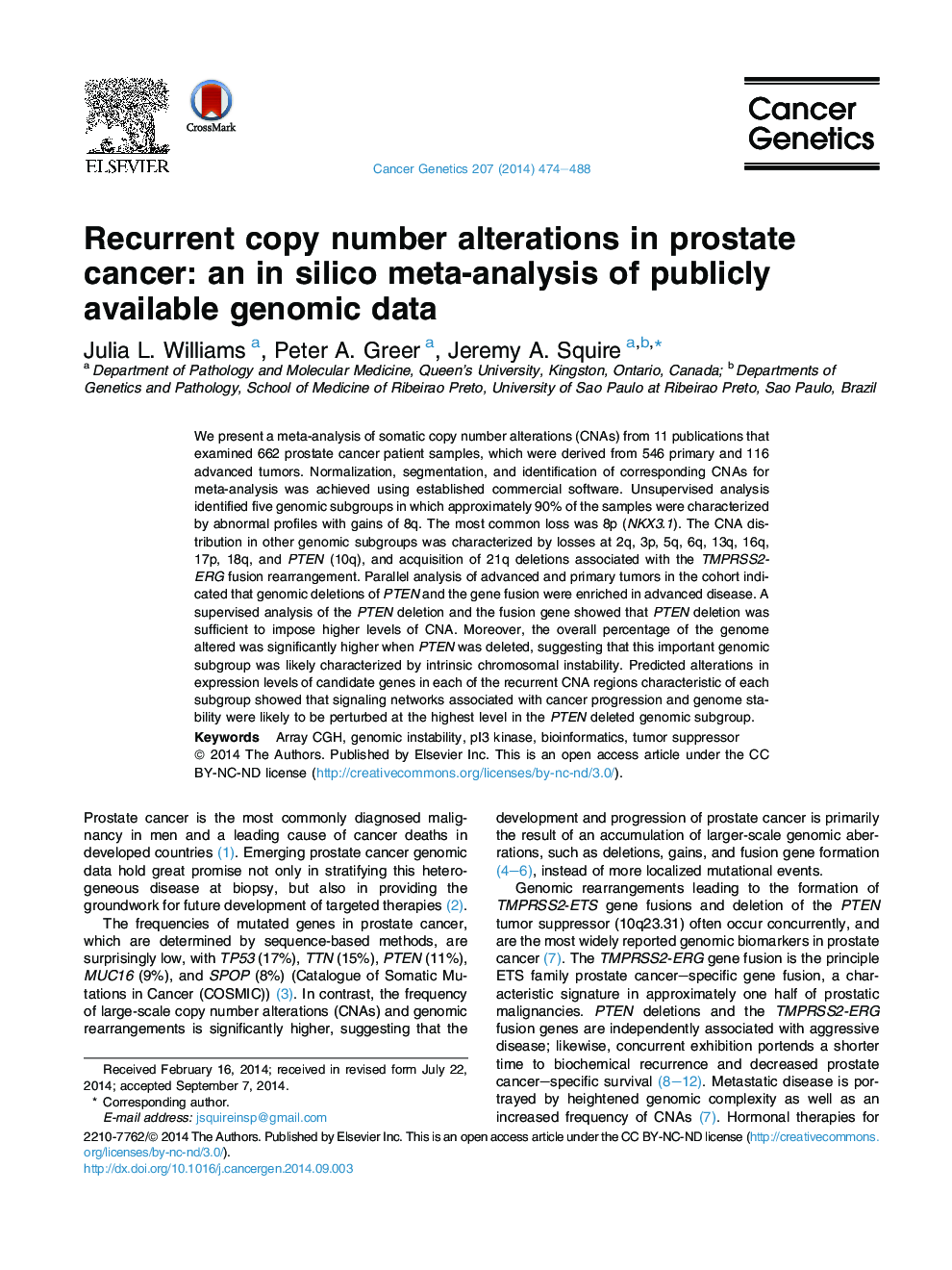| Article ID | Journal | Published Year | Pages | File Type |
|---|---|---|---|---|
| 8433996 | Cancer Genetics | 2014 | 15 Pages |
Abstract
We present a meta-analysis of somatic copy number alterations (CNAs) from 11 publications that examined 662 prostate cancer patient samples, which were derived from 546 primary and 116 advanced tumors. Normalization, segmentation, and identification of corresponding CNAs for meta-analysis was achieved using established commercial software. Unsupervised analysis identified five genomic subgroups in which approximately 90% of the samples were characterized by abnormal profiles with gains of 8q. The most common loss was 8p (NKX3.1). The CNA distribution in other genomic subgroups was characterized by losses at 2q, 3p, 5q, 6q, 13q, 16q, 17p, 18q, and PTEN (10q), and acquisition of 21q deletions associated with the TMPRSS2-ERG fusion rearrangement. Parallel analysis of advanced and primary tumors in the cohort indicated that genomic deletions of PTEN and the gene fusion were enriched in advanced disease. A supervised analysis of the PTEN deletion and the fusion gene showed that PTEN deletion was sufficient to impose higher levels of CNA. Moreover, the overall percentage of the genome altered was significantly higher when PTEN was deleted, suggesting that this important genomic subgroup was likely characterized by intrinsic chromosomal instability. Predicted alterations in expression levels of candidate genes in each of the recurrent CNA regions characteristic of each subgroup showed that signaling networks associated with cancer progression and genome stability were likely to be perturbed at the highest level in the PTEN deleted genomic subgroup.
Related Topics
Life Sciences
Biochemistry, Genetics and Molecular Biology
Cancer Research
Authors
Julia L. Williams, Peter A. Greer, Jeremy A. Squire,
